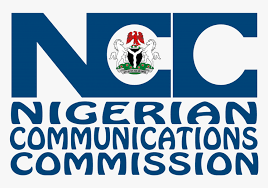The public inquiry we are conducting today is a testament to the Commission’s dedication to transparency and inclusivity, ensuring that the voices of all stakeholders are heard and considered,”
Dr. Maida
By Abdulrahman Aliagan, Abuja
In a move to ensure the Nigerian communications sector keeps pace with the rapidly evolving digital landscape, the Nigerian Communications Commission (NCC) has embarked on a comprehensive public consultation process to review and refine key regulatory instruments.
The two-day public inquiry, which kicked off on May 21st at the NCC headquarters in Abuja, brought together industry experts, stakeholders and engaged citizens to provide valuable feedback on three critical regulatory frameworks: the Telecommunications Networks Interconnect Regulations, the Guidelines on Procedure for Granting Approval to Disconnect Telecommunications Operators, and the Guidelines for Dispute Resolution.
Speaking at the event, the Executive Vice Chairman of the NCC, Dr. Aminu Maida, emphasized the importance of this consultative approach in shaping the future of the communications industry.
“The public inquiry we are conducting today is a testament to the Commission’s dedication to transparency and inclusivity, ensuring that the voices of all stakeholders are heard and considered,” Dr. Maida said. “These regulatory instruments play a vital role in shaping our communications landscape, and it is essential that we visit and refine them to address emerging challenges, trends and opportunities.”
The Interconnect Regulations, for instance, are being reviewed to enhance compliance, provide a comprehensive interconnection framework, and improve monitoring systems. Interconnection is a critical enabler of seamless communication between different networks, and this revision aims to foster competition, protect consumer interests, and align with international standards.
Similarly, the Guidelines on Procedure for Granting Approval to Disconnect Telecommunications Operators are being updated to ensure fairness, transparency and certainty in disconnection procedures. This will not only protect operators from unjustified disconnections but also promote healthy competition and strengthen investor confidence.
The third instrument, the Guidelines for Dispute Resolution, is also undergoing a refresh to streamline the process, save time, reduce costs, and minimize service disruptions, particularly for small claims. This, according to the NCC, will enhance stakeholder confidence in the resolution process and contribute to a more stable telecommunications ecosystem.
“Disputes are an inevitable part of any industry, and having a robust framework to resolve them is crucial,” Dr. Maida noted. “These guidelines aim to provide a clear and transparent mechanism for resolving conflicts within the communications sector, promoting timely resolutions and ensuring that stakeholders are treated fairly.”
The Ag. Head of Legal and Regulatory Services Department of NCC, Mrs. Chizua Whyte, welcomed the participants and stressed the importance of this collaborative approach in driving the industry forward.
“The Nigerian Communications Act 2003 empowers us to develop and amend regulatory instruments, and your input today is crucial in refining these regulations to address the sector’s evolving challenges,” Mrs. Whyte said. “As the communications industry evolves with emerging technologies, our regulatory instruments must adapt swiftly, and this public inquiry underscores our commitment to regulatory excellence and to building a robust communications sector that supports the Nigerian economy.”
The two-day public inquiry provided a platform for industry stakeholders to engage directly with the NCC, offering their insights and recommendations to shape the future of the communications landscape in Nigeria. The Commission’s collaborative approach is seen as a testament to its dedication to fostering a dynamic, inclusive and forward-looking industry that serves the best interests of all Nigerians.

